Grad Chat - Queen's School of Graduate Studies and Postdoctoral Affairs
Hosted by CJ the DJ (Colette Steer), this is a 30 minute radio show featuring a graduate student or postdoc each week. Each episode is an opportunity for Queen’s grad students and postdocs to showcase their research to the Queen’s and Kingston community. From time to time, CJ the DJ also interviews an alum or interview grad students in relation to something topical for the day. Grad Chat is a collaboration between the School of Graduate Studies and Postdoctoral Affairs and CFRC 101.9FM
Amy Parks (Cultural Studies) and Sam Gene (Biology) from the Queen’s Swing Dance Club
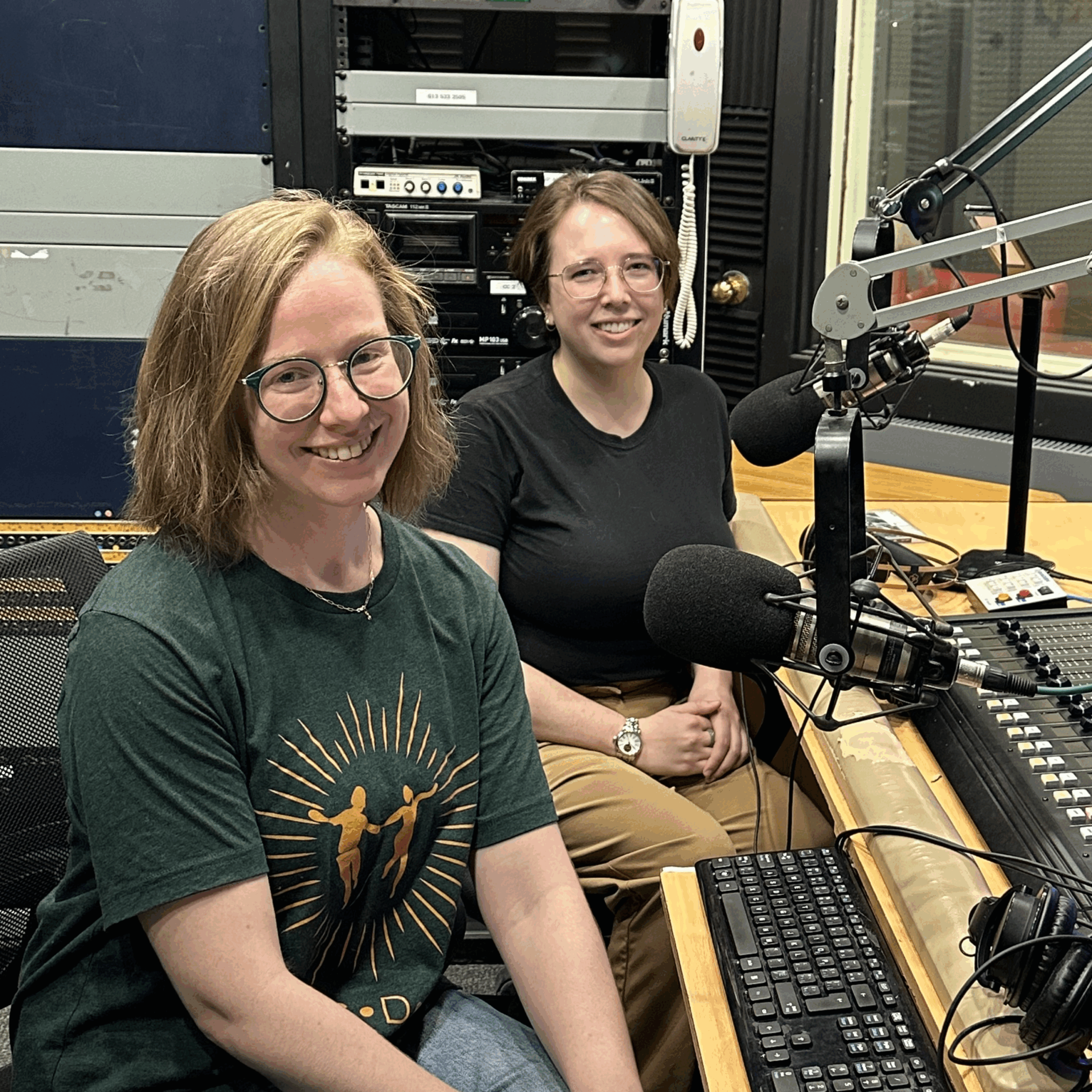
This week join Amy Parks (Cultural Studies) and Sam Gene (Biology) for a discussion of their research and the Queen’s Swing Dance Club which they both help run. For more information check out the Grad Chat webpage on Queen’s University School of Graduate Studies & Postdoctoral Affairs website – https://www.queensu.ca/grad-postdoc/research/share/grad-chat
Izzah Wahab (DBMS) Estrone Uses a Biased GPCR Signaling Paradigm to Modulate Cancer Progression
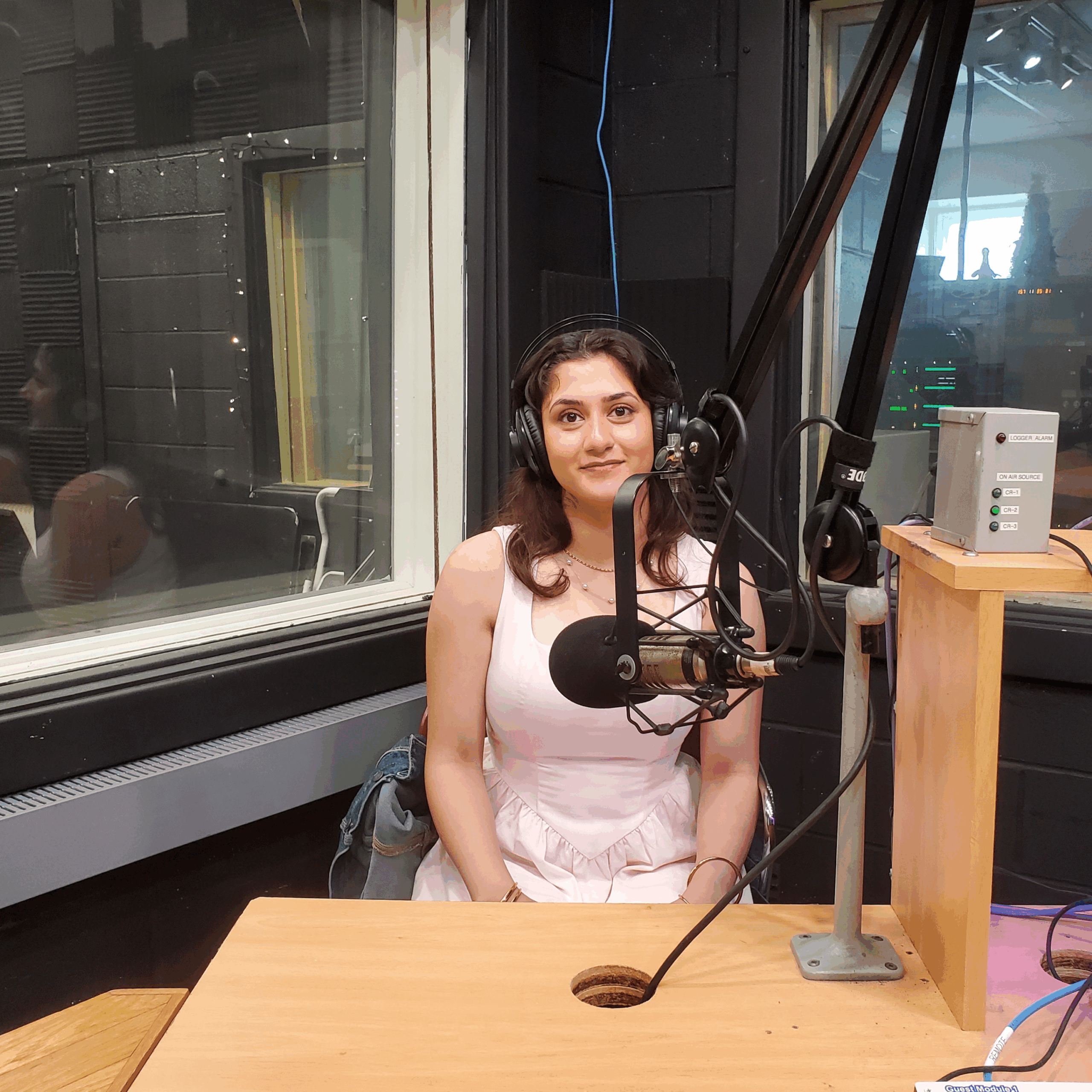
This week join Izzah Wahab for a discussion of her research on estrogren, specifically E1, and how it uses he GPCR signaling paradigm in relation to cancer progression.
For upcoming interviews check out the Grad Chat webpage on Queen’s University School of Graduate Studies & Postdoctoral Affairs website – https://www.queensu.ca/grad-postdoc/research/share/grad-chat
Educational Development Associates Kim, Paul, and Hebatella from the Centre for Teaching and Learning
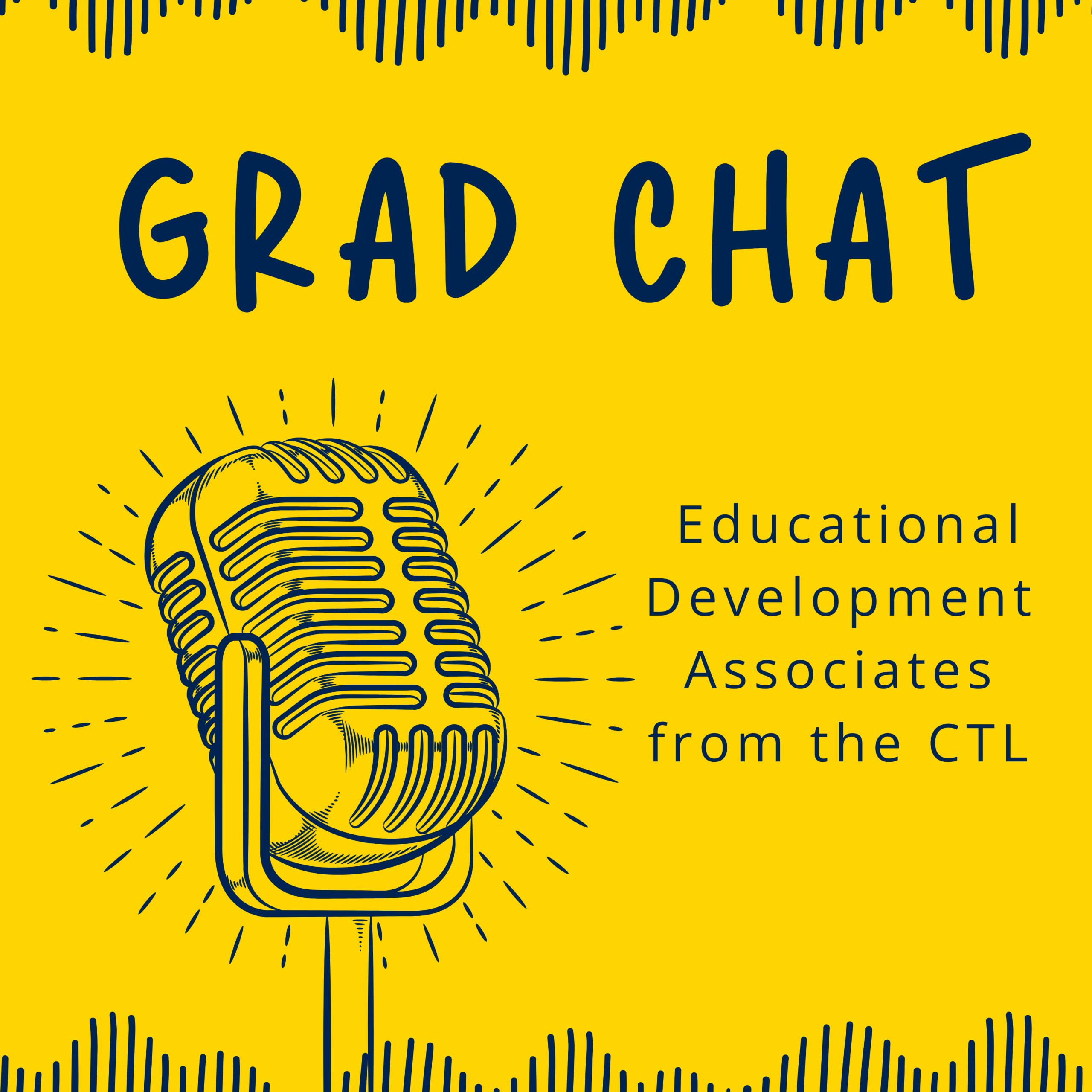
This week we have Kim Hill-Tout, Paul Akpomuje, and Hebtalla Ouda discuss their roles as Educational Development Associates at the Centre for Teaching and Learning. They discuss supports available to graduate student educators and how to get involved. For upcoming interviews check out the Grad Chat webpage on Queen’s University School of Graduate Studies & Postdoctoral Affairs website.
Grad Chat Transitions

This week’s show is hosted by Suyin the DJ Bear. Suyin the DJ Bear interviews CJ the DJ, Colette Steer, and KM on the FM, Katie-Marie McNeill, about Grad Chat’s history and future. As you may have heard, CJ the DJ is retiring from her role at Queen’s University, and she has passed hosting duties of Grad Chat to her colleague KM on the FM.
For upcoming interviews check out the Grad Chat webpage on Queen’s University School of Graduate Studies & Postdoctoral Affairs website – https://www.queensu.ca/grad-postdoc/research/share/grad-chat
Peash Saha (Computing) – Improving Efficiency of Societal Services for the Vulnerable through Algorithmic Approach
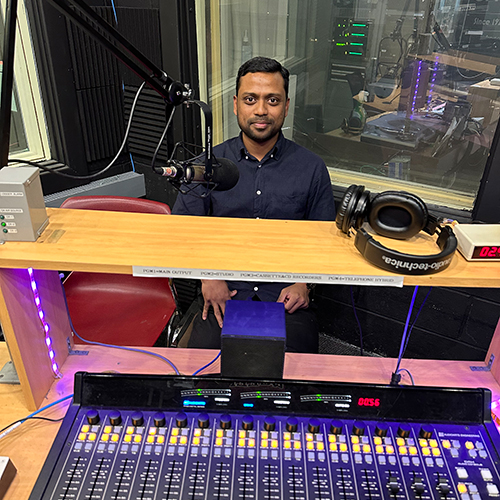
A social choice represents the collective decision of the individuals based on their preferences over the alternatives. There are societal services operated by governmental or non-governmental organizations which implement a social choice model. For example, the allocation of shelters to homeless individuals considers both the preferences of homeless individuals and the shelters. However, the preferences of such vulnerable populations may not be as structured as required in the system for them to receive an effective service. Peash’s research focus is on building a unified preference system to reflect the unconventionality in the natural preferences of the vulnerable attempting to...
Bhavya Bogra (Geography) – Travel Needs of Older Adult Women in Mid-Sized Canadian cities
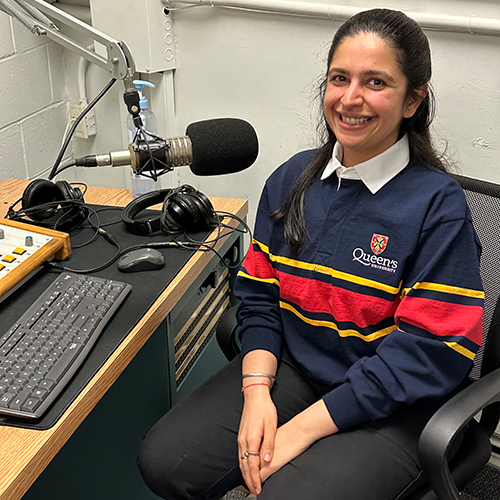
With Canada’s aging population and rising immigration rates, this research explores the unique transportation challenges faced by older adult women—both local-born and immigrants—in mid-sized Canadian cities.
For upcoming interviews check out the Grad Chat webpage on Queen’s University School of Graduate Studies & Postdoctoral Affairs website.
Nithikaa Shashikanth (Rehabilitation Science) – Parent-Administered Sensorimotor Intervention (PASI) Program
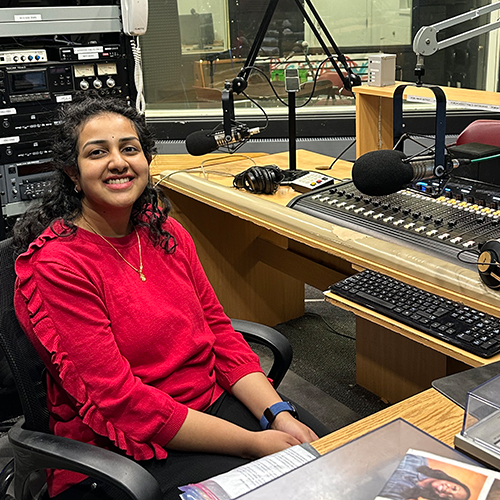
Nithikaa looks at the effect of the Parent-Administered Sensorimotor Intervention (PASI) on the developmental outcomes in infants born preterm at 18 months of age and to determine the long-term impact of this program.
For upcoming interviews check out the Grad Chat webpage on Queen’s University School of Graduate Studies & Postdoctoral Affairs website.
Nikta Sadati (English Literature) – Afrofuturism and Diaspora Studies
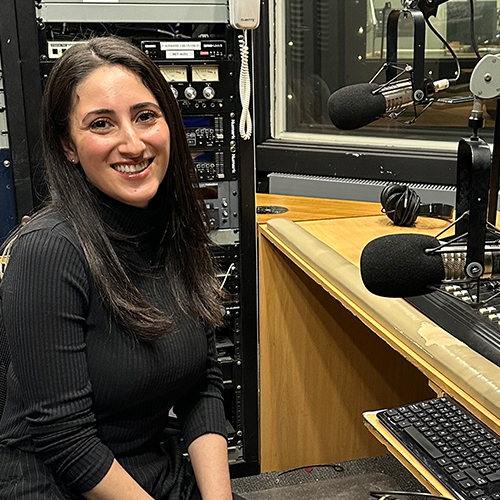
Nikta’s research for my dissertation, titled “Queer Remembering: Fractured Memory and Haunted Futures in Contemporary Novels of the Black Diaspora,” focuses on the contemporary re-imagining of archiving Black pasts and futures in Afrofuturist, diasporic, fantasy novels. The authors and texts that I examine refuse the fluidity of time and truth, opting for fantastical representations of space and history. These alternative representations range from ghosts and possessions, to imagining a dystopic life in space. I call these alternative modes of memory, imagination, and geography queer re-membering in the Black diaspora.
For upcoming interviews check out the Grad Chat w...
Danielle Harper (Pathology & Molecular Medicine) – Genetic disruption to decrease breast cancer metastasis
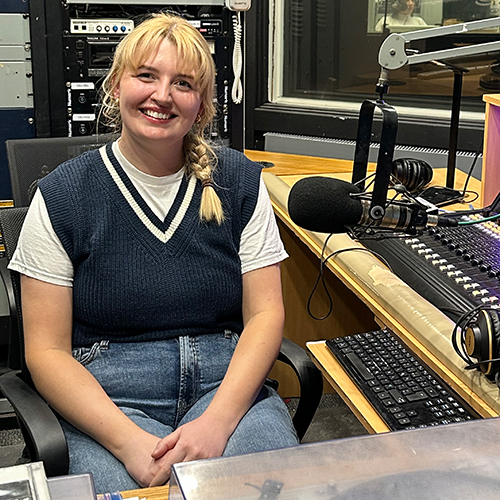
Danielle studies triple-negative breast cancer (TNBC), an aggressive breast cancer subtype associated with poor survival. Unlike other subtypes for which there are targeted therapies, treatment options for TNBC are limited. In order to better understand the biology underlying TNBC, she studies a family of proteins called calpains.
For upcoming interviews check out the Grad Chat webpage on Queen’s University School of Graduate Studies & Postdoctoral Affairs website.
Margot Smith (Geography) – An Astrobiologists’s study of lipids in spring waters up in the high Arctic
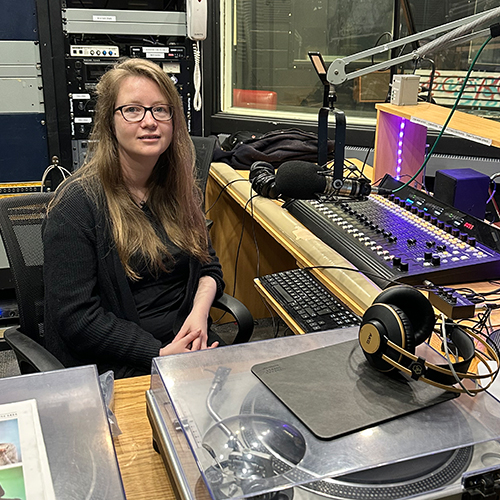
The Arctic is host to cold, hypersaline, perennial springs that flow through 600m of permafrost. I studied 44 samples from cores, sediments, filtrates and microbial mats from these springs. Surficial life at these springs has been studied for decades, but this is the first investigation that looks at the deep subsurface life. This is of interest as a Mars analogue site for deep subsurface life on Mars.
For upcoming interviews check out the Grad Chat webpage on Queen’s University School of Graduate Studies & Postdoctoral Affairs website.
Basmah Rahman (English Literature) – Canadian BIPOC Literature and Educational Pedagogies
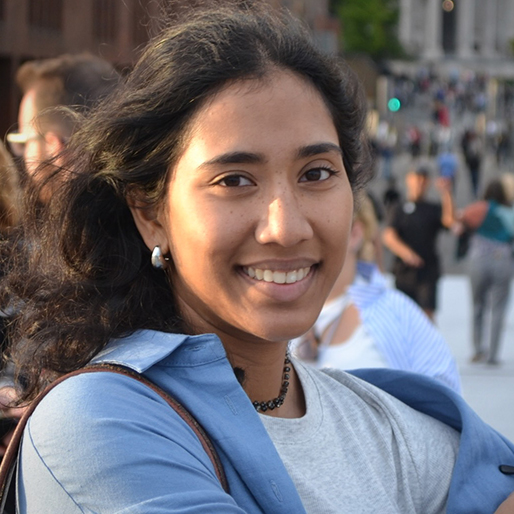
Canadian provincial education systems play a vital role in developing the social and academic interests of youth who, typically, spend over thirty hours in classrooms per week. Yet, significant consistency in terms of provincial guidelines and teacher booklists restrict these classrooms’ approaches to diverse literary content. The lack of both diverse content and representative teachers can skew ongoing perceptions of identity, academic success, and later socio-economic security, especially for racialized students.
For upcoming interviews check out the Grad Chat webpage on Queen’s University School of Graduate Studies & Postdoctoral Affairs website.
Alyssa Grocutt (Management) – Employee perceptions and behaviours towards tattooed colleagues
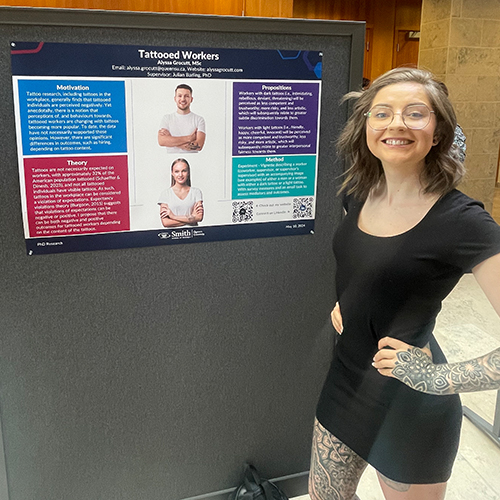
Alyssa’s research focuses on nuances in observer perceptions and treatment of tattooed colleagues based on tattoo content.
For upcoming interviews check out the Grad Chat webpage on Queen’s University School of Graduate Studies & Postdoctoral Affairs website.
Lara Bulger (Cultural Studies) – Documentary Film, how we can use it as a pedagogical tool and a medium for social change

Lara is looking at Canadian documentary film through both a contemporary and historical lens, as well as the limits of radical pedagogy and activism. Some of the themes that interest her include environmental racism, Indigenous sovereignty and food security.
For upcoming interviews check out the Grad Chat webpage on Queen’s University School of Graduate Studies & Postdoctoral Affairs website.
Zoe Brisson-Tsavoussis (Astro-particle Physics) – Neutrinos, Blazars and Black holes
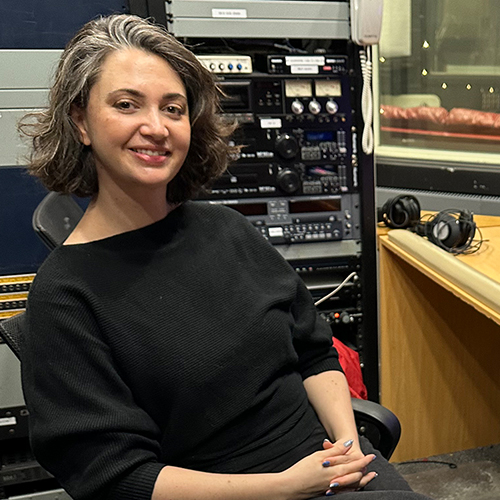
My research focuses on looking at black holes. Some black holes are so energetic, that they tear up the bright hot matter spinning around them and funnel it into jets shooting out their top and bottom. And once in a while, we luck out and a few black holes are oriented so that the jets are pointed straight towards the earth! We call these kinds of black holes Blazars, and it’s my job to look at their most energetic and extreme cases and try to figure out if there are any neutrinos in those jets! If we can fi...
Francisco Zepeda Trujillo (Cultural Studies) – Failed Aspirations: Modernity, Religion, and the Interplay of Social and Political Imaginaries in Twentieth Century Mexico
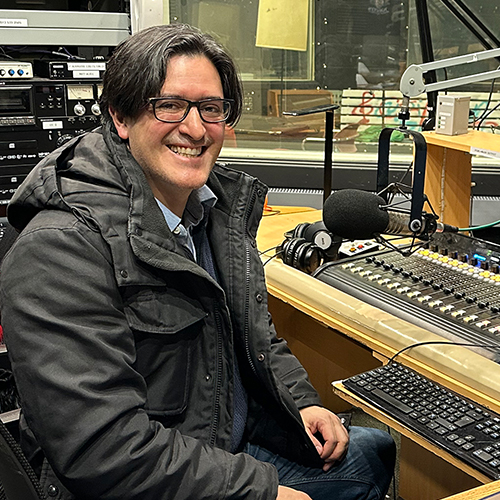
This research explores the interplay of social and political imaginaries in Mexico, both secular and religious, during the twentieth century. It uses archival research and discourse analysis to examine how liberal and revolutionary political leaders and various Catholic groups have interacted, how they have handled their contradictions, how their relationships and imaginaries have evolved, and what role these imaginaries have played in building Mexico as a modern nation.
For upcoming interviews check out the Grad Chat webpage on Queen’s University School of Graduate Studies & Postdoctoral Affairs website
Ahmad Nagib (computing) – Building Trust in Reinforcement Learning for Next-Generation Wireless Networks
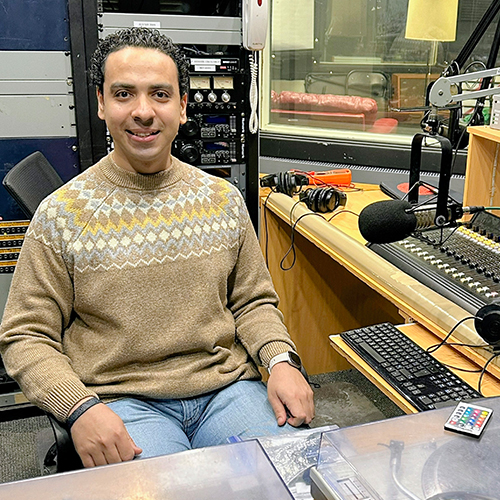
Machine learning is very popular nowadays for solving problems in many fields, including wireless networks such as 5G networks that we use to make calls and connect to the internet using our phones. Next-generation wireless networks (NGWNs), such as 6G networks, will include more diverse devices and applications that make them more complex to control, even using machine learning approaches. In my Ph.D. thesis, I addressed some of the practical challenges of applying machine learning approaches, specifically reinforcement learning, in real deployments of NGWNs.
For upcoming interviews check out the Grad Chat webpage on Queen’s Un...
Gabby Torretto (Pathology & Molecular Medicine) – Assessing BRCA1 Genetic Variants involved in Hereditary Breast and Ovarian Cancer
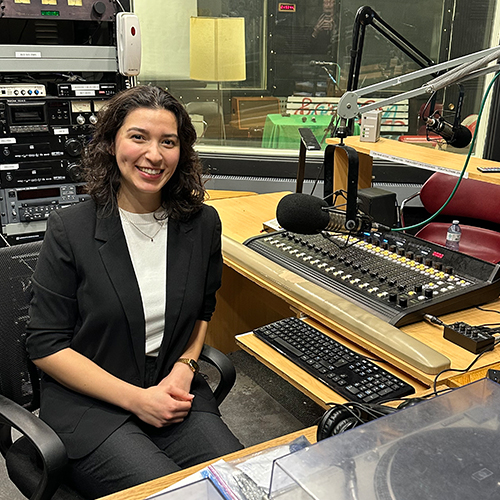
Between 5-10% of breast and 20-25% of ovarian cancers are inherited. The majority of hereditary breast and ovarian cancer cases are caused by deleterious mutations (variants) in the BRCA1 and BRCA2 genes, which normally prevent cancer through protecting and repairing our DNA. Genetic testing is used to identify pathogenic BRCA carriers who would subsequently benefit from personalized screening, preventative and management plans. However, its widespread implementation has resulted in a significant increase in findings of variants of uncertain significance (VUS) – DNA sequence variants with uncertain effects on disease risk. VUSs pose a critical clinical challenge as they limit clinicians’ abil...
Christina Ferazzutti (Biomedical & Molecular Sciences) – Why One Complicated Pregnancy Can Lead to Another: The Role of Immune Memory
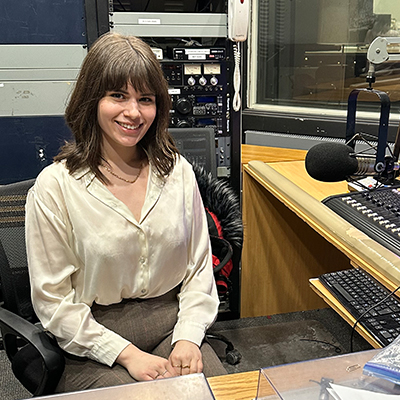
Recurrent pregnancy loss (RPL) is a significant complication linked to uncontrolled inflammation, which not only causes immediate distress but also heightens risks in future pregnancies. It is hypothesized that inflammation during pregnancy induces long-term changes in maternal immune cells, altering their responses in subsequent pregnancies and increasing complications.
For upcoming interviews check out the Grad Chat webpage on Queen’s University School of Graduate Studies & Postdoctoral Affairs website
PHD-CI project with KFL&A Public Health
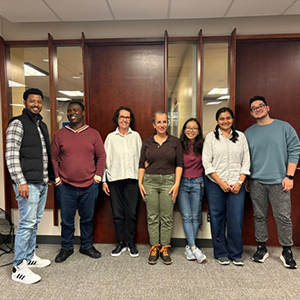
This session talks about the PhD-Community Initiative program at Queen’s University and one of the projects with a community partner (KFL&A Public Health) to provide a Program Evaluation of the Efforts to Prevent Invasive Meningococcal Disease in Kingston.
For upcoming interviews check out the Grad Chat webpage on Queen’s University School of Graduate Studies & Postdoctoral Affairs website.
Trent Atkinson (MA, Religious Studies) – Muscular Christianity
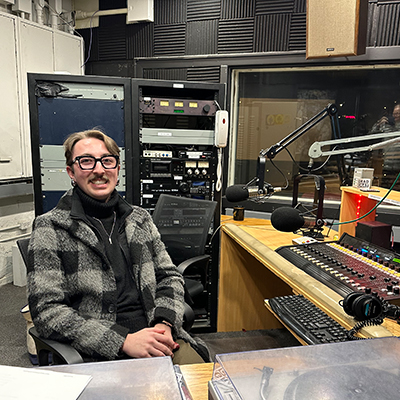
Rooted in Victorian England as a response to a number of social and religious factors, Muscular Christianity is a set of beliefs that revolves around contact sports, the physicality of the male body, and a return to a “traditional” masculinity (a term always fraught), much writing has been done on Muscular Christianity in it’s heyday during the late 19th and early 20th centuries. What my research aims to do then is to examine the role that it plays in the 21st century through the lens of American sports culture and American colleges, and how Muscular Christianity is shaping a new...
Allen Tian (Biology) – Assessing the impact of invasive mollusk species on native mollusk communities and algal blooms with eDNA
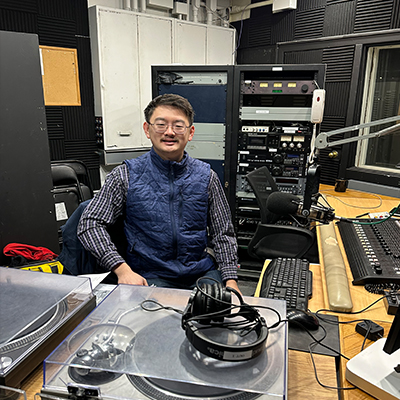
Zebra mussels are some of the most high profile and impactful invasive species in Canada, and have transformed the Great Lakes watershed in the past three decades. Voracious feeders that consume all algae, they have clarified our lakes, caked our beaches with their sharp shells, and denied other species precious food. Interactions between zebra mussels and algal blooms, another notorious nuisance, are largely unknown. My research uses environmental DNA, an emerging technology, to examine what factors make an ecosystem resilient to zebra mussel invasion, how native mollusk communities react to zebra mussels, and if they help or hinder algal...
CJ the DJ with DJ Bear – What’s happening in 2025
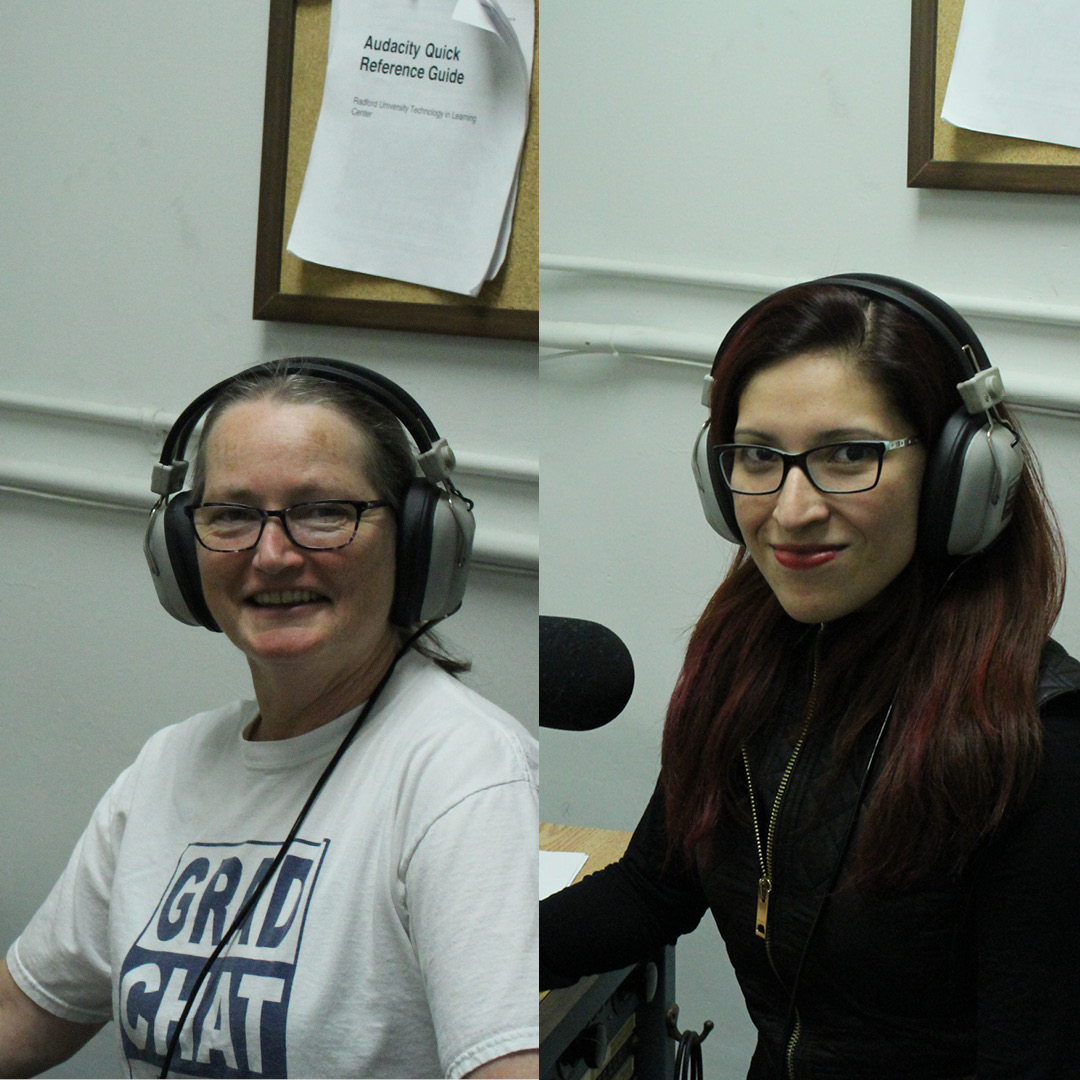
A look at what graduate events are coming up in 2025 from GRADflix to the Three Minute Thesis.
For upcoming interviews check out the Grad Chat webpage on Queen’s University School of Graduate Studies & Postdoctoral Affairs website – https://www.queensu.ca/grad-postdoc/research/share/grad-chat
CJ the DJ with DJ Bear – 2024, It’s a Wrap!

Reflecting on this years interviews. For upcoming interviews check out the Grad Chat webpage on Queen’s University School of Graduate Studies & Postdoctoral Affairs website – https://www.queensu.ca/grad-postdoc/research/share/grad-chat
Logan Germain (Biomedical & Molecular Sciences) – The impact of the environmental pollutant triphenyl phosphate on epigenetics in aquatic embryonic cells

Triphenyl phosphate is used as a flame retardant and plasticizer in a wide variety of consumer and industrial products in Canada. TPhP is also an environmental pollutant found in air, water and soil. TPhP has been shown to act as an Endocrine Disrupting Chemical, meaning it interferes with normal hormonal signalling. I’m investigating how epigenetic modifications may lead to changes in hormonal and metabolic pathways during embryonic development.
For upcoming interviews check out the Grad Chat webpage on Queen’s University School of Graduate Studies & Postdoctoral Affairs website – https://www.queensu.ca/grad-postdoc/research/share/grad-chat
Eileen O’Brien (Biomedical & Molecular Sciences) – Gut healing: uncovering immune pathways contributing to IBD
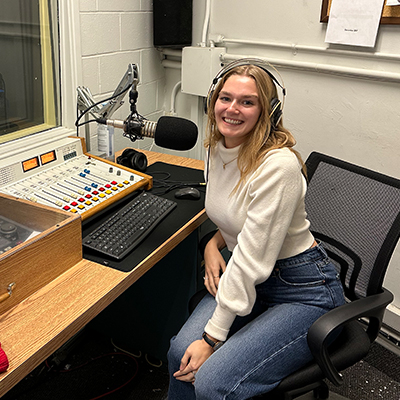
Inflammatory bowel disease (IBD) is an immune disorder leading to chronic inflammation in the gastrointestinal tract. It affects 0.8% of the Canadian population with a recent increased prevalence in the pediatric population.
For upcoming interviews check out the Grad Chat webpage on Queen’s University School of Graduate Studies & Postdoctoral Affairs website – https://www.queensu.ca/grad-postdoc/research/share/grad-cha
Fateme Babaha (Pathology & Molecular Medicine- Investigation of Hemophilia A gene therapy
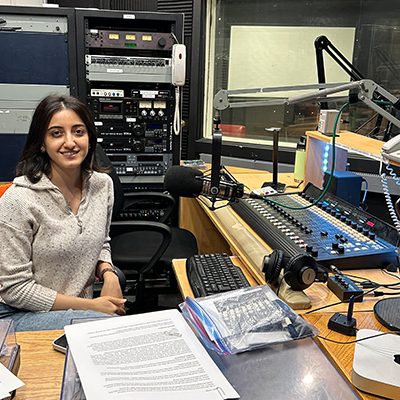
Hemophilia A (HA) is an X-linked bleeding disorder caused by a mutation in the factor 8 (F8) gene that codes for FVIII coagulation protein. FVIII is naturally synthesized in the liver and the mutation results in the loss of function of FVIII protein which is critical in the blood clotting cascades. HA occurs is 1 to 5000 male births and it is estimated that there are a total of 3000 patients with HA in Canada. Currently, HA patients are treated with replacement therapy of the deficient factor. However, this approach is transient because of the short half-life of recombinant or plasma derived FVIII...
Blue Miaoran Dong (Carleton-PhD) – Studying the similarities and differences between tech platforms and privatized infrastructure.

Although tech platform companies often claim in their advertisements and public relations efforts that they represent the public interest, as private companies, their primary goal is to maximize their own profits. Equating private interests with public interests not only overlooks the issues arising from the increasingly blurred lines between the two but also worsens the damage that conflicts of interest can cause to sustainable public systems.
For upcoming interviews check out the Grad Chat webpage on Queen’s University School of Graduate Studies & Postdoctoral Affairs website.
Max van Zyl (Chemistry) and the Bader Symposium.
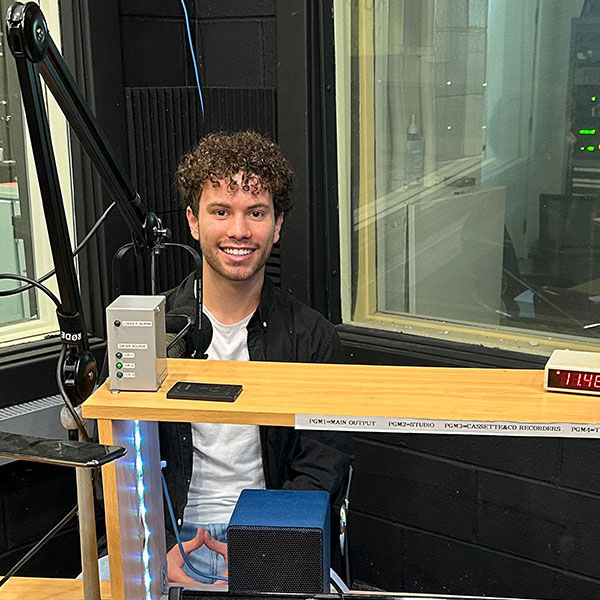
The Queen’s chapter and why be part of the American Chemical Society will be hosting the “Celebrating the Late Dr. Alfred R. Bader: A 100th Birthday Symposium” on Monday, November 18th, 2024. This interviews highlights the work of Dr Bader and how Queen’s will showcase his love for chemistry and the arts. To round it off we delve a little bit into Max’s own research- Combining Quantum Chemistry Concepts and Machine Learning for Drug Discovery.
For upcoming interviews check out the Grad Chat webpage on Queen’s University School of Graduate Studies & Postdoctoral Affairs website.
Laura Szczyrba (Geological Sciences) – Modern Coastal Processes
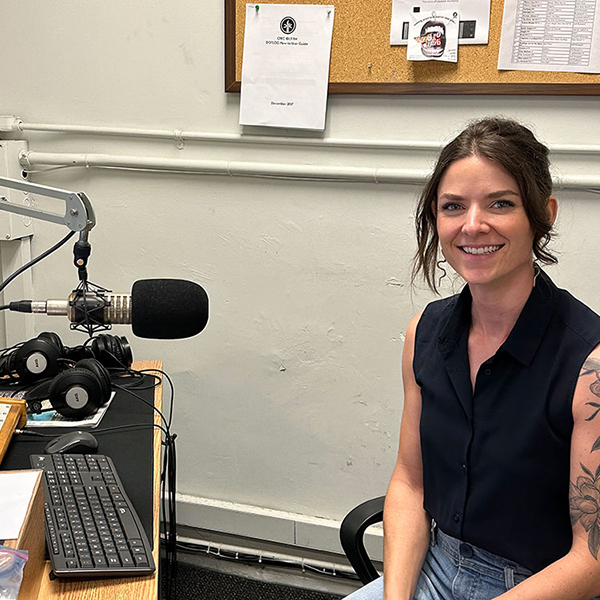
The coastal zone is shaped by sea level change, wave action, geological characteristics, and human decisions. These processes are spatially continuous, therefore techniques that monitor larger regions, such as remote sensing and numerical modeling, allow for a more detailed understanding of the drivers of coastal change. In Laura’s research, she applies these techniques to understand how waves and shoreline erosion evolve during storm events. Her main area of focus is the sandy beaches of the Outer Banks, North Carolina, USA. Here, the rate of erosion is so high that local infrastructure is critically threatened and her research informs be...
Rashelle Aldbai (Biomedical & Molecular Sciences) – Impact of cannabis on cancer metastasis mediated through epigenetic rewiring
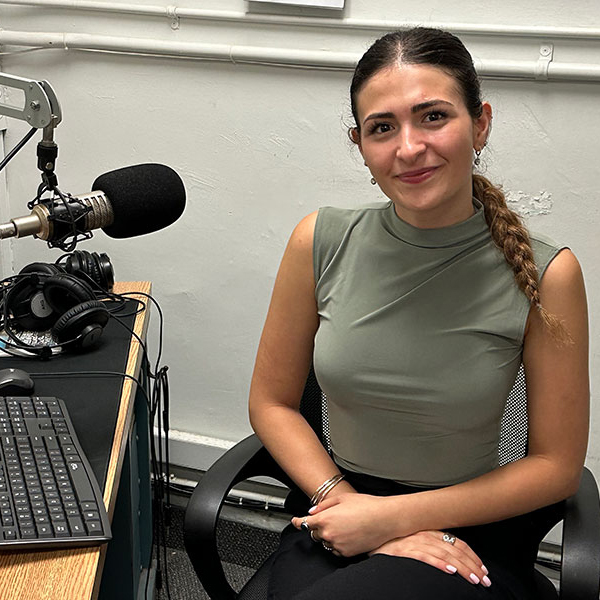
The plant Cannabis sativa L. has historically served as a herbal remedy, garnering a considerable surge in both recreational and medicinal domains in contemporary times. However, this increased application has not aligned with our clinical awareness regarding the disturbances associated with cannabis. This assumes heightened significance in the context of palliative care for cancer patients, as the parameters controlling the interactions between cannabis and cancer have remained poorly defined.
For upcoming interviews check out the Grad Chat webpage on Queen’s University School of Graduate Studies & Postdoctoral Affairs website.
Kennedy Quigg (Chemistry/Chemistry Biology) – Discovery and Characterization of Putative Thermostable Enzymes for the Degradation of Polyether-Polyurethane Foam
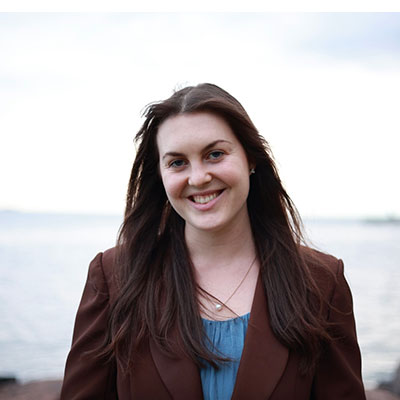
Over 2,000 garbage trucks worth of plastic waste enter our oceans, lakes, rivers, and estuaries every day. Of the 300 million tons of plastic produced annually, only 10% is recycled. Due to the inertness and durability of plastic materials, current industrial recycling processes employ energetically demanding processes such as combustion and melting which further the global climate crisis by releasing greenhouse gases into the atmosphere. As such, enzymatic degradation of plastic has emerged as a promising alternative to traditional plastic recycling approaches since enzymes operate under significantly milder and less energetically demanding conditions.
For upcoming interviews check out the Grad...
Jessica Burnside (Epidemiology) – The Burden of Steatotic Liver Disease in Canada: Sex Differences in Prevalence and Cardiometabolic Profiles
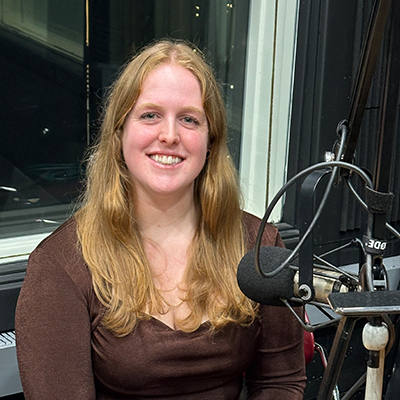
Jessica discusses the characteristics of metabolic dysfunction-associated steatotic (fat build up) liver disease (MASLD) in the Canadian context.
For upcoming interviews check out the Grad Chat webpage on Queen’s University School of Graduate Studies & Postdoctoral Affairs website.
Taylor Rae Morrell (Geological Sciences) – how the pre-existing faults in the tectonic plate that is thrust beneath the other plate can be reactivated or move during collision
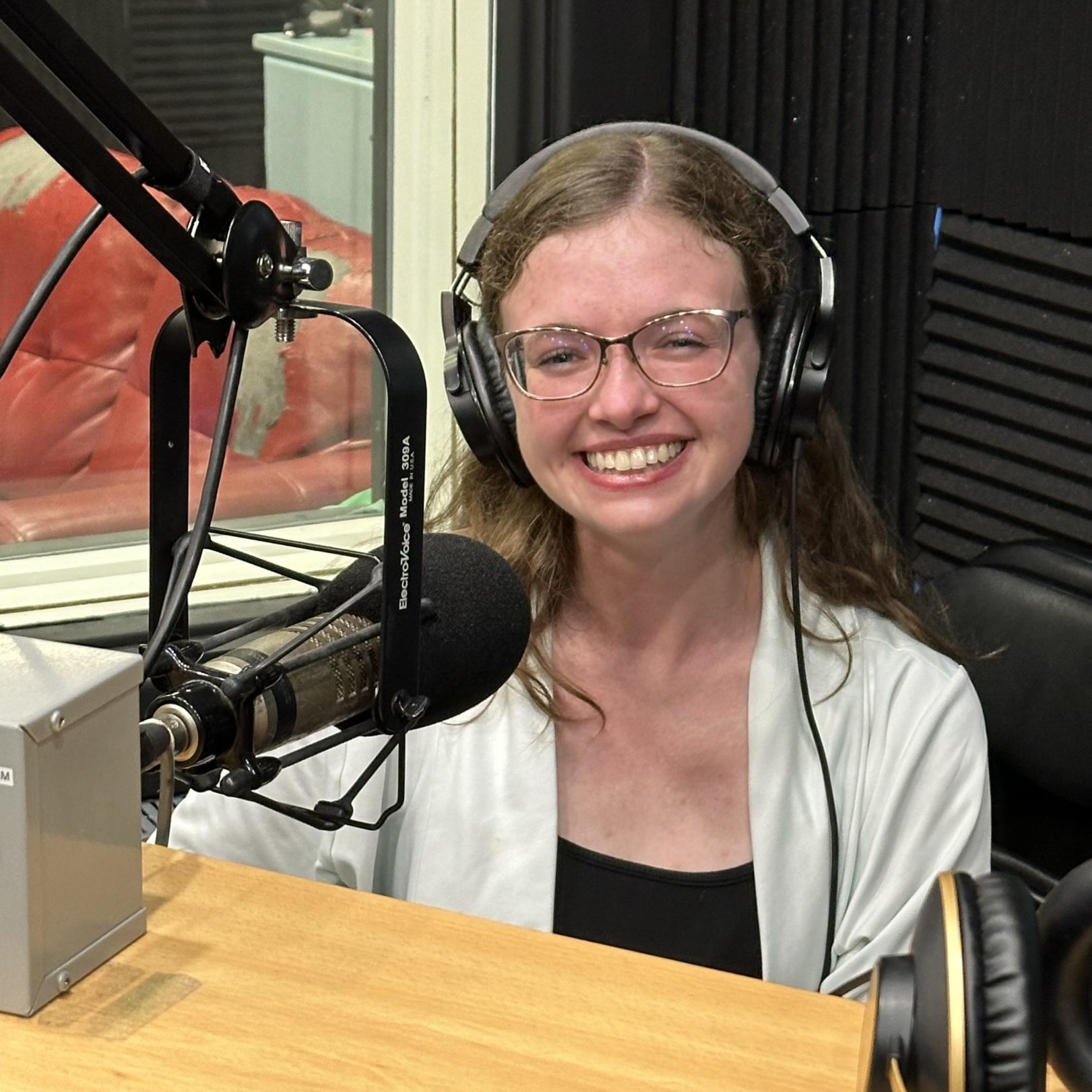
Taylor is a structural geologist, which means I study the architecture and processes behind the development of mountain systems. As a structural geologist, I need to factor in all the different aspects of a mountain system to effectively study it and create a comprehensive tectonic model to explain the evolution of the mountain system.
For upcoming interviews check out the Grad Chat webpage on Queen’s University School of Graduate Studies & Postdoctoral Affairs website.
Lyn Wattam (Religious Studies) – The Trump Prophecy Movement
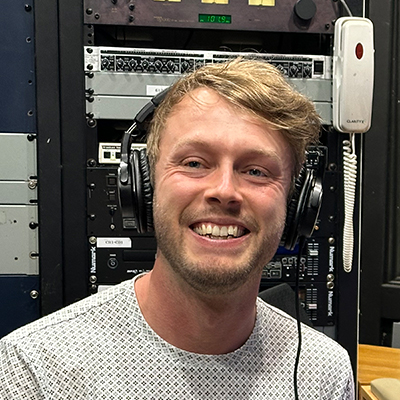
Mapping out and understanding the rise, power and resiliency of modern Christian prophecy among American evangelical voters that relate to Donald Trump’s presidency.
For upcoming interviews check out the Grad Chat webpage on Queen’s University School of Graduate Studies & Postdoctoral Affairs website.
David McFarlane (TMU) – How we might come to understand the Great Lakes as animated actors in their own rights, with their own unique subjectivities?
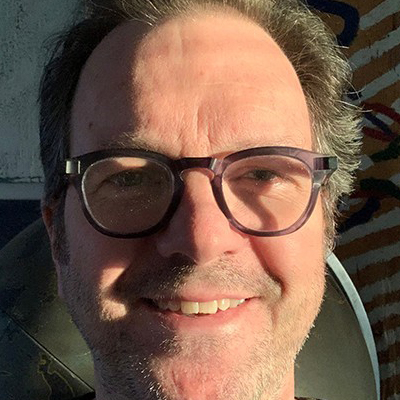
David’s research-creation project draws on his experiences as a musician and visual artist, to employ sonic data gathering techniques such as biodata sonification and field recordings, alongside embodied and Indigenous-informed research methodologies in order to undertake a co-created artistic acoustic ecology with the Great Lakes.
For upcoming interviews check out the Grad Chat webpage on Queen’s University School of Graduate Studies & Postdoctoral Affairs website.
Jenelle Regnier-Davies (Toronto Metropolitan University)- Food security and food insecurity responses on the municipal level
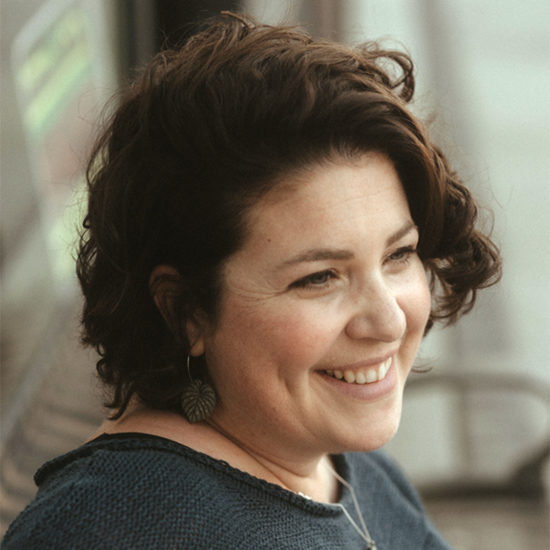
Jenelle’s Ph.D. dissertation research examines the impacts of the COVID-19 pandemic on community-based food security responses in Toronto and entails broader examinations of food system governance in practice. Her work interrogates the equitable distribution of resources among the non-profit sector and examines EDI practices within philanthropic and government granting mechanisms.
For upcoming interviews check out the Grad Chat webpage on Queen’s University School of Graduate Studies & Postdoctoral Affairs website.
Jiale Xie (MSc in Translational Medicine) – Personalizing Blood Pressure Targets in the ICU to Improve Survivor Cognitive Outcomes
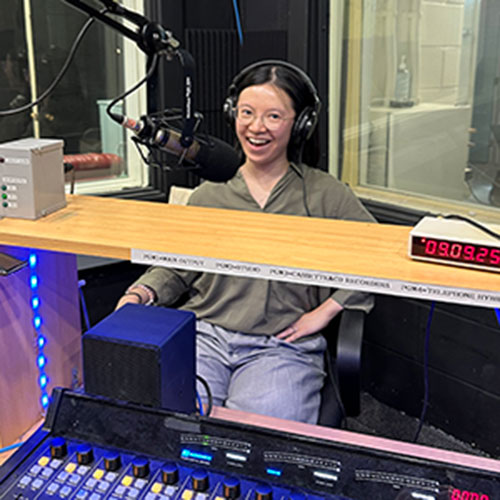
Each year, approximately 230,000 Canadians, or 1 in 100, receive ICU care. While over 90% survive, up to 55% of survivors develop long-lasting cognitive impairment within two years of ICU discharge. Recent research suggests that inadequate blood flow to the brain may play a role. The purpose of Jiale’s research is to identify patients’ optimal blood pressure ranges in real-time in the ICU and explore the feasibility of maintaining them within these ranges using clinically available blood pressure infusions.
For upcoming interviews check out the Grad Chat webpage on Queen’s University School of Graduate Studies & Postdoctoral Affairs website
Debbie Hernandez (English & Film Studies) – Demythologizing Our Stories: (Re)connecting with Cultural Teachings in the Filipino Diaspora
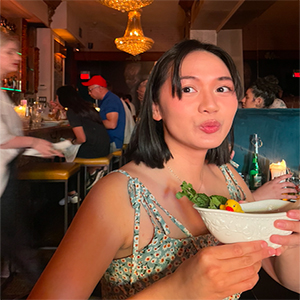
Debbie Hernandez, a PhD student from Wilfrid Laurier University, explores the importance of cultural teachings in Filipino communities, focusing on how these teachings are remembered, experienced, used, and passed on, despite being marginalized within dominant cultures. Guided by feminist theory and postcolonial studies, particularly M. Jacqui Alexander’s concept of “pedagogies of the Sacred,” herwork respects these belief systems as real and valuable, rather than dismissing them as mere cultural artifacts.
For upcoming interviews check out the Grad Chat webpage on Queen’s University School of Graduate Studies & Postdoctoral Affairs website.
Julianna Petrenko (Biology) – Urban Ecology
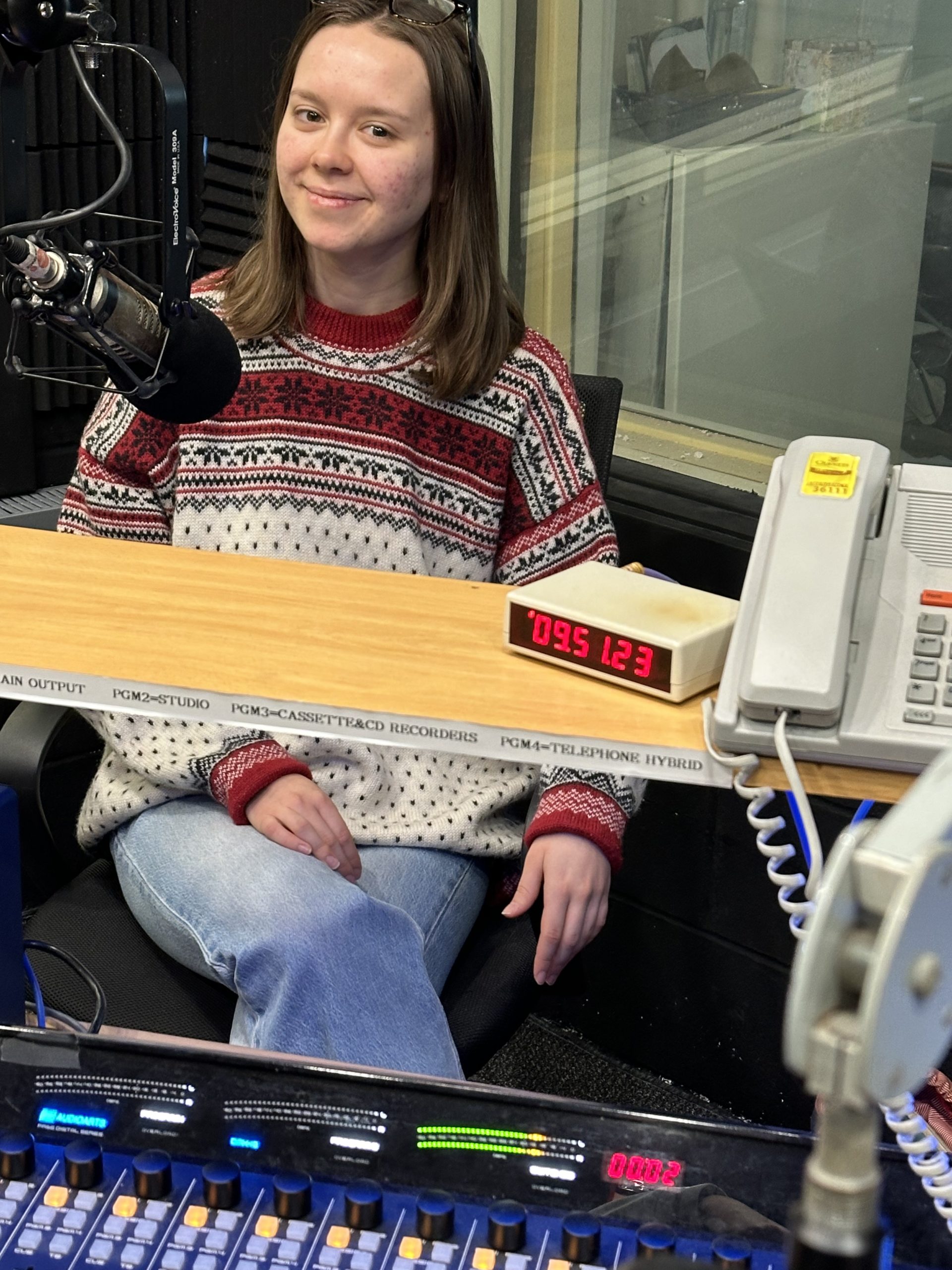
Julianna talks about how we are losing biodiversity at an alarming rate, largely because of human-caused habitat degradation and loss. Yet, some species are persisting or even increasing for reasons that are often unclear. Some species might persist because of their ability to tolerate life in cities – one of the most dramatically human-modified habitats. Surprisingly, city birds were no more likely to have stable populations than birds that avoid cities, illustrating that urban tolerance does not protect against population declines.
For upcoming interviews check out the Grad Chat webpage on Queen’s University School of Graduate Studies & Postd...
Bilen Mekoonen Araya (Rehabilitation Science) – The experience of infertility and rehabilitation services for women experiencing infertility in Ethiopia
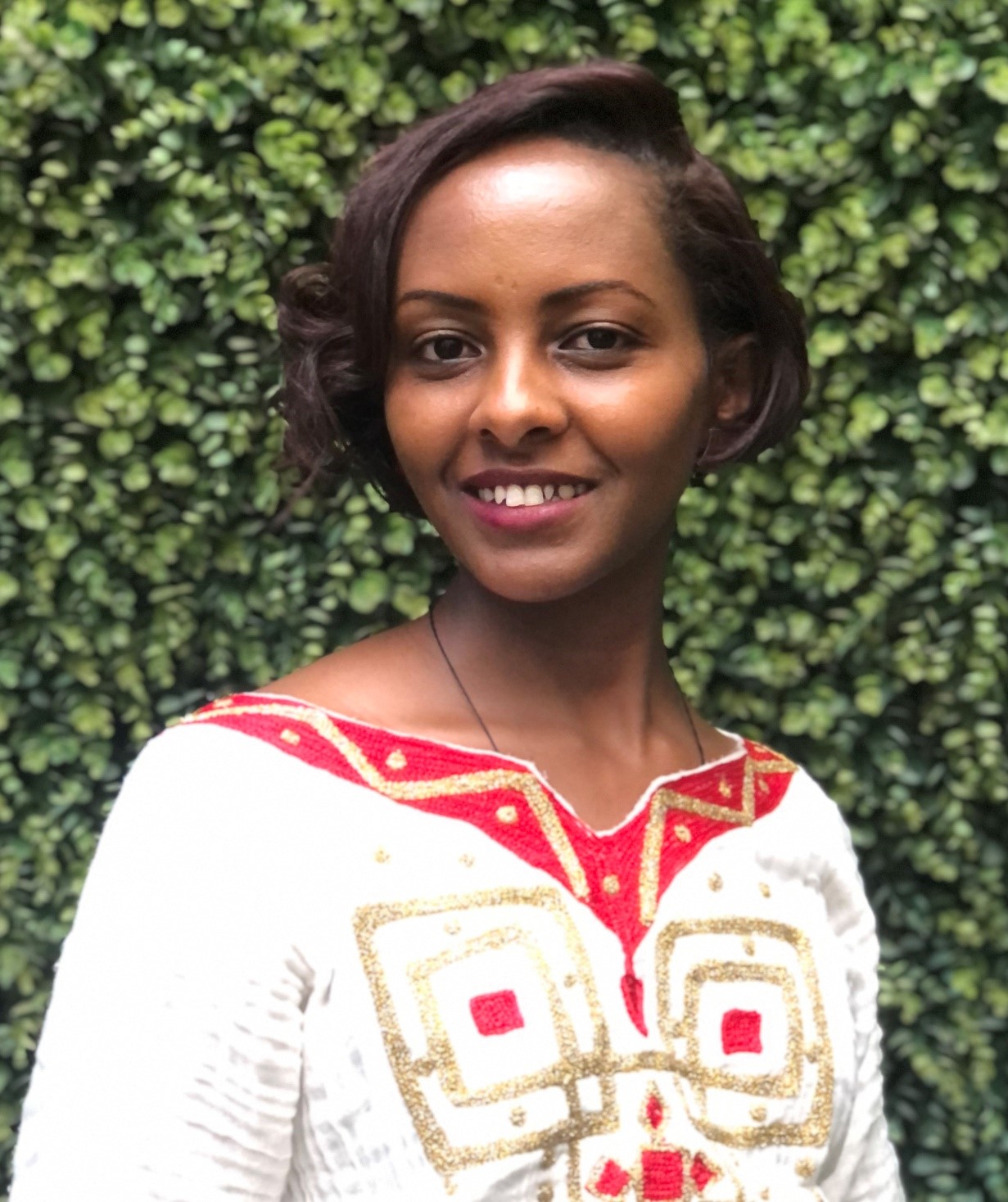
Infertility – involuntary childlessness – affects millions of people, especially women, globally. In Ethiopia, it causes significant distress and burden on women, but there is limited research on rehabilitation services available to them. Understanding the psychological, social, and financial challenges for women living with infertility in Ethiopia is important.
For upcoming interviews check out the Grad Chat webpage on Queen’s University School of Graduate Studies & Postdoctoral Affairs website.
